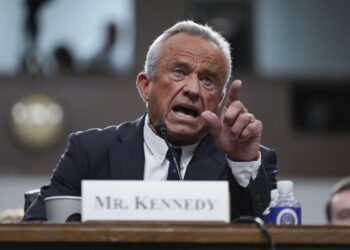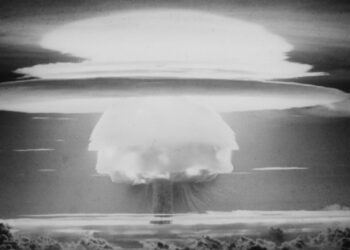Bannon Warns Trump: Don’t Own the Ukraine War
On WarRoom today, Steve Bannon, Jack Posobiec, and international correspondent Ben Harnwell unleashed a powerful critique of U.S. involvement in Ukraine. Their message to President Trump was clear: Stay out of this conflict.
Bannon Calls Out U.S. Involvement
Bannon went straight to the point. “This is not President Trump’s war,” he declared. Trump, he argued, has been unfairly tied to the situation despite his efforts to avoid escalation. "If the election hadn’t been stolen from him, there wouldn’t even be a war,” Bannon said, blaming the 2020 election results for the current crisis.
Bannon’s sharp remarks highlighted how the conflict, which has spiraled into a quagmire, has become a political and financial liability for the U.S.
Ukraine Conflict: A Burden on America
The financial toll of the Ukraine war was a central topic. "We’ve given them $250 billion—a quarter of a trillion dollars,” Bannon stated, arguing that those funds would have been better used to address domestic issues like the homeless crisis in Southern California. This criticism is part of a broader narrative from Bannon and others who believe the U.S. should focus on internal challenges rather than prolonging foreign conflicts.
Bannon also hit hard on the economic repercussions of this ongoing foreign aid. "The Federal Reserve can’t keep printing money,” he warned. "Interest rates are going up. Your mortgage, car loan, credit cards—they’re all going to get more expensive.” These remarks tie Ukraine’s war effort to broader concerns about inflation and national debt, emphasizing the financial strain on American citizens.
Economic Fallout: Rising Debt and Inflation
Bannon’s argument was grounded in the real-world impact of continuing to fund Ukraine’s war. With rising debt and soaring interest rates, he painted a grim picture for American families. “You’ve got to refinance $7 trillion,” Bannon said, pointing to the ballooning national debt. This has led to a tightening of U.S. financial markets and higher costs for everyday Americans, from mortgages to credit card interest.
“The rest of the world is watching,” he added, urging a rethinking of U.S. foreign policy that prioritizes national stability over overseas intervention.
Military Strain: U.S. Resources Running Low
Jack Posobiec took the conversation to a military angle, warning that the U.S. is running dangerously low on key resources. "We’ve sent so much that our Navy is saying we’re low on ordnance to defend against China,” Posobiec explained. He noted that U.S. military stockpiles are critically low, with key supplies stretched thin as the country diverts its resources to Ukraine.
"Right now, we can’t even produce enough to maintain our own military’s needs,” Posobiec added, making the case that America’s own defense capabilities are being compromised by its ongoing involvement in the Ukraine conflict.
Ukraine War: A Losing Battle
Posobiec also underscored that U.S. involvement hasn’t been effective in deterring Russia. "The Ukrainians are being overrun, especially in the Donbas region,” he said. Russian forces have made significant advances, and Posobiec warned that the situation is worsening by the day. As the war drags on, the cost—both human and financial—continues to rise with no clear end in sight.
The inability of Ukraine to secure decisive victories against Russia suggests that this war may not be winnable, further complicating the U.S.’s ongoing role in the conflict.
Waltz’s Comments: A Trap for Trump?
Rep. Mike Waltz recently warned that Trump must take action to prevent "hell to pay” in the Middle East, while implying that the U.S. must be more aggressive in its approach to Ukraine. Bannon shot back, accusing Waltz’s rhetoric of aligning perfectly with the narrative pushed by global elites. "They want Trump to step in and take ownership of the war,” Bannon said, framing this as a dangerous trap.
Bannon referred to a piece written by Robert Kagan, an influential neoconservative thinker, who suggested that a Ukrainian defeat would be a catastrophic blow to Trump. "They’re setting Trump up to fail,” Bannon warned. "Step in, and it’s your war; step out, and it’s your weakness.”
Trump’s Position: Firm Against Escalation
Bannon urged Trump to maintain his firm stance against the war. "Trump didn’t start this war,” he reminded the audience, stressing that Trump’s involvement would be politically and strategically disastrous. "If he does, six months down the line, they’ll blame him for Biden’s mess.”
This sentiment was echoed by Harnwell, who warned against falling into the trap set by the globalists. Trump, Harnwell said, must avoid being dragged further into this quagmire and instead focus on ending the conflict without exacerbating U.S. entanglement.
Trump Must Avoid the Globalist Trap
Bannon stressed that globalist elites are eager for Trump to take the reins and continue the same foreign policies as the Biden administration. "They’re waiting for Trump to fall into their trap,” Bannon cautioned. He argued that any U.S. involvement in Ukraine, no matter how limited, would be used to undermine Trump politically.
The danger, Bannon argued, lies in Trump’s potential entanglement in a prolonged conflict that he didn’t create and can’t resolve. His only option is to disengage and prioritize America’s interests.
The Only Path: Stay Out of Ukraine
Bannon’s advice to Trump was clear: The only way to win this war is to not play. Trump’s initial stance—opposing U.S. involvement—remains his strongest position, Bannon concluded. "He warned against this war from the start. The only way to win is to stay out,” Bannon said.
Trump’s Role: Protect America, Not Clean Up Biden’s Mess
Bannon wrapped up the discussion with a reminder to Trump that this war is not his to own. “His job is to protect America and bring peace, not to clean up Biden’s disasters,” Bannon said. His message was loud and clear: Stay out of Ukraine, and focus on securing America’s future.
For more context, watch this clip of Monday’s WarRoom:
Steve Bannon: This is Not President Trump’s War





![Bannon’s WarRoom, Show Clip Roundup 10/22/2024 [PM]](https://warroom.org/wp-content/uploads/2024/10/fb2ffed0-b36b-11e9-bffe-749dcc4e236f-75x75.jpg)